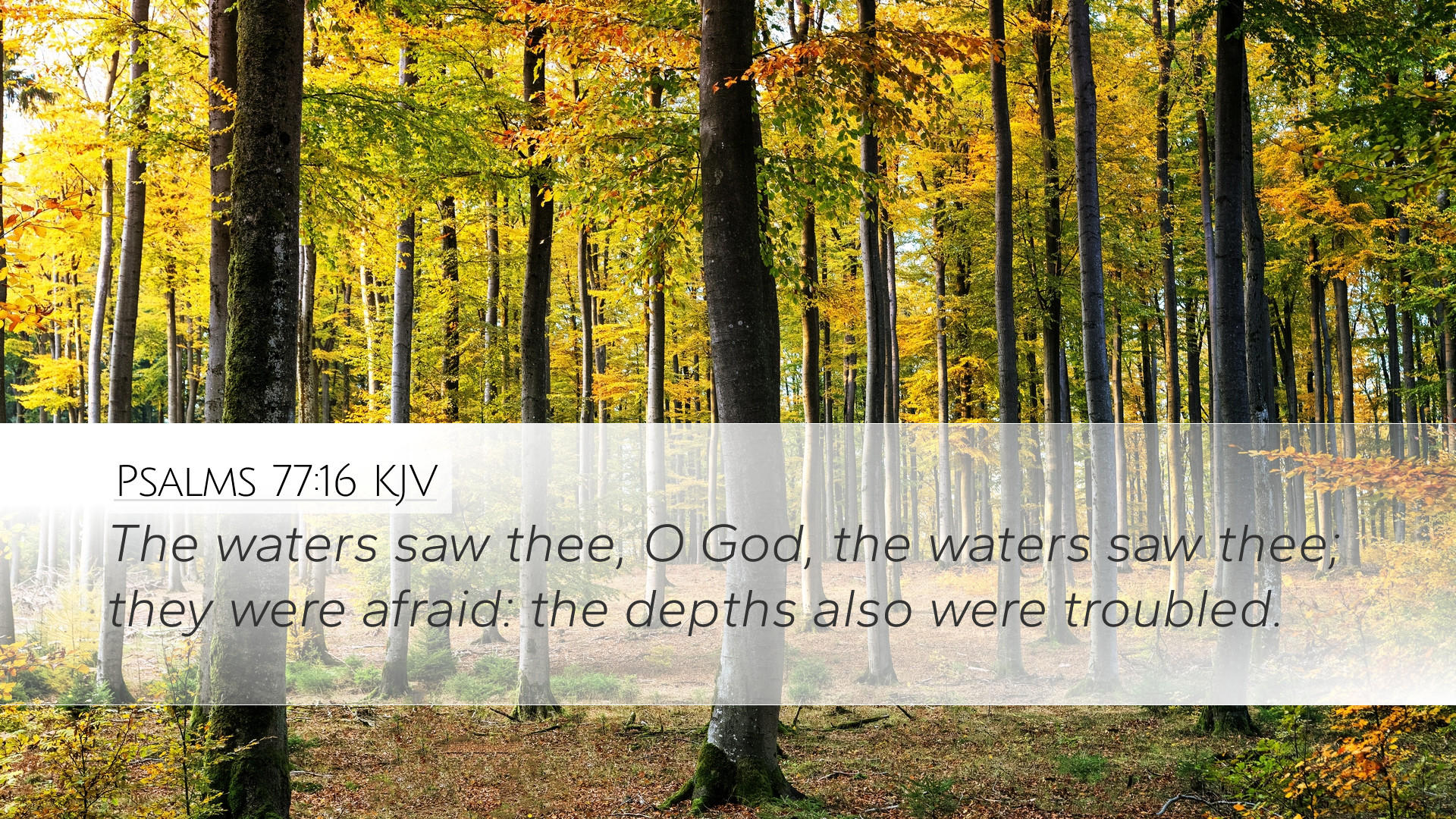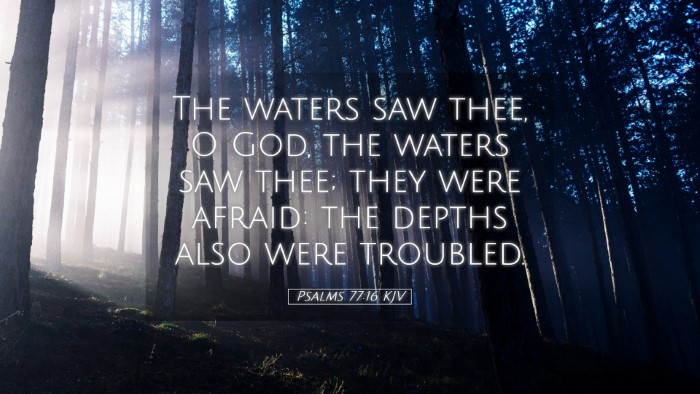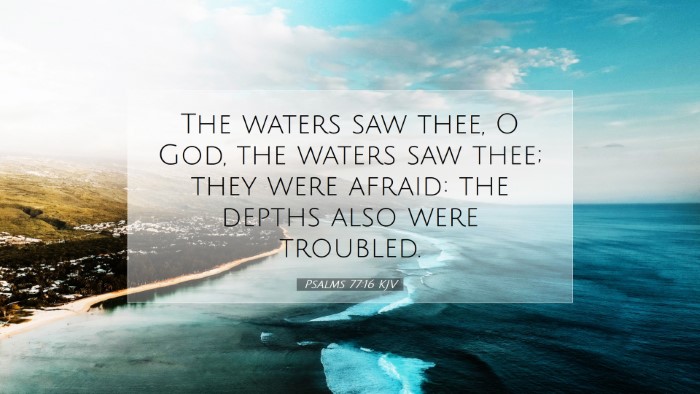Commentary on Psalm 77:16
Text of Psalm 77:16: "The waters saw thee, O God, the waters saw thee; they were afraid: the depths also were troubled."
This verse, nestled within the profound reflections of Psalm 77, transports the reader into a narrative of divine majesty and the profound effects of God's presence upon creation. The psalmist, traditionally understood to be Asaph, expresses deep anguish followed by an exhilarating proclamation of God’s power over nature.
1. Contextual Overview
The broader context of Psalm 77 reveals a dialogue of despair and hope. The psalmist begins by crying out to God in distress (Psalm 77:1-2), transitioning into memories of God's providential actions in Israel's history, particularly during the Exodus. This provides a backdrop for understanding the significance of the waters’ response to God.
2. The Nature of God’s Majesty
Matthew Henry explains that the phrase "the waters saw thee" conveys a personification of nature, illustrating that even the natural world is aware of its Creator. God’s majesty is such that the very elements tremble at His command. As Henry elaborates, this acknowledgment of God's presence is not limited to human beings but extends to all of creation, which inherently recognizes His authority.
3. The Fear of Creation
Further insights from Albert Barnes indicate that the “waters” denote the chaotic forces of the deep—the seas, rivers, and other water bodies that symbolize tumult and danger. Barnes suggests that their fear represents the inherent recognition of God’s omnipotence. The overwhelming depths, often seen as chaos in ancient Near Eastern literature, are depicted here as quaking under God's gaze, a reflection of His supreme power over disorder.
4. Depths Troubled
Adam Clarke adds a theological nuance by suggesting that the "depths" represent not just physical water but metaphorical depths—those places of despair and difficulty where human beings often find themselves. The troubled depths parallel the psalmist’s own troubled heart, indicating that when God acts, even the bleakest circumstances cannot remain unchanged.
5. Theological Implications
This verse emphasizes several theological truths:
- The Sovereignty of God: This passage underscores the absolute sovereignty of God over creation. The waters, representing chaos, directly respond to the divine presence.
- Creation's Response to God: As creation acknowledges God’s power, it serves as a reminder for believers to recognize and respond to God's authority in their lives.
- Encouragement in Distress: The psalmist’s reflection inspires believers in their moments of distress. Just as the chaotic waters were calmed, so too can God bring peace to our personal storms.
6. Applications for Believers
This passage offers profound insights applicable to the lives of believers:
- Awareness of God’s Presence: Just as the waters and depths acknowledged God, believers are called to cultivate an awareness of God's presence in all aspects of life.
- God’s Control Over Chaos: Recognizing that chaos in our lives is subject to God’s sovereignty provides comfort and assurance that we are never alone in our struggles.
- Encouragement to Worship: The response of creation prompts a response of worship and reverence. Believers are encouraged to respond to God’s revealing of Himself with adoration and praise.
7. Conclusion
Psalm 77:16 reminds us that even the most powerful forces in nature recognize the authority and majesty of God. As pastors, students, theologians, and scholars delve into this rich text, they can explore the interplay between divine sovereignty and human distress, drawing insights that offer hope and encouragement. In grappling with life’s 'depths,' one can find solace in the truth that God is always present, holding sway over every tumultuous moment.


